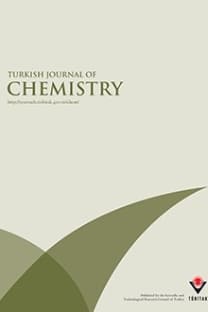Isolation and Characterization of a Smectite as a Micro-Mesoporous Material from a Bentonite
A procedure was assessed for obtaining an optimum amount of a micro-mesoporous material known as smectite from Reşadiye (Tokat/Turkey) bentonite. The procedure, which will permit a better economic evaluation of the Reşadiye reserves, is based on successive settlements of bentonite suspensions during various time intervals. To characterize the original bentonite, its fractions and the high purity smectite product, X-ray diffraction, differential thermal analysis, thermogravimetric analysis, scanning electron microscopy and nitrogen adsorption-desorption techniques were used. The original bentonite contained 50% by mass sodium-rich smectite (NaS) and 10% by mass NaCa-smectite (NaCaS). It also contained illite, clinoptilolite, analcime, feldspar, calcite, dolomite, quartz and opal-C. It was determined that the NaCaS particles were laminated whereas the NaS particles were delaminated. The specific surface areas of the original bentonite and NaS were respectively 27 m2 g-1 and 43 m2 g-1 and the specific micropore-mesopore volumes were respectively 0.055 cm3 g-1 and 0.065 cm3 g-1. It was established that the porosity increased after purification. It was concluded that it was possible to isolate a micro-mesoporous material, i.e. high purity NaS, with a yield of 50% from the aqueous suspension of bentonite. The procedure did not require the use of any chemical reagent.
Isolation and Characterization of a Smectite as a Micro-Mesoporous Material from a Bentonite
A procedure was assessed for obtaining an optimum amount of a micro-mesoporous material known as smectite from Reşadiye (Tokat/Turkey) bentonite. The procedure, which will permit a better economic evaluation of the Reşadiye reserves, is based on successive settlements of bentonite suspensions during various time intervals. To characterize the original bentonite, its fractions and the high purity smectite product, X-ray diffraction, differential thermal analysis, thermogravimetric analysis, scanning electron microscopy and nitrogen adsorption-desorption techniques were used. The original bentonite contained 50% by mass sodium-rich smectite (NaS) and 10% by mass NaCa-smectite (NaCaS). It also contained illite, clinoptilolite, analcime, feldspar, calcite, dolomite, quartz and opal-C. It was determined that the NaCaS particles were laminated whereas the NaS particles were delaminated. The specific surface areas of the original bentonite and NaS were respectively 27 m2 g-1 and 43 m2 g-1 and the specific micropore-mesopore volumes were respectively 0.055 cm3 g-1 and 0.065 cm3 g-1. It was established that the porosity increased after purification. It was concluded that it was possible to isolate a micro-mesoporous material, i.e. high purity NaS, with a yield of 50% from the aqueous suspension of bentonite. The procedure did not require the use of any chemical reagent.
